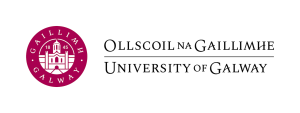Government-Industry Quantum Computing Roundtable in Ireland

IDA-ICHEC Quantum Industry Roundtable
The theme and scope of this roundtable hosted by IDA Ireland (Irish State Agency for Foreign Direct Investment), in collaboration with ICHEC (Irish Center for High-End Computing), is to address how Ireland and enterprises with stake in quantum computing can together foster increased collaborations, job creation and exploitation of ongoing activities in the area of quantum computing.
Research and development of quantum technologies has gained significant attention and momentum globally. Quantum technologies is considered to be potentially viable and valuable, thus leading to many governments ramping up their support. The European Union and the United States have both launched billion-dollar behemoths: the ten-year €1 billion EU Quantum Technologies Flagship programme, and five-year $1 billion US National Quantum Initiative. Public and private investment in quantum technologies as exceeded $1 billion in the United Kingdom, while China is working towards to open the world’s largest quantum-research laboratory by 2020 at a cost of $10 billion. Many other countries are following suit as well: India and South Korea have each committed to investing tens of millions of US dollars per year. And, Russia includes quantum technology in its top-ten list of national technological initiatives.
The EU Quantum Flagship programme highlights four thematic pillars in the development of quantum technologies:
- Quantum communication
- Quantum computation
- Quantum simulation
- Quantum sensing/metrology
In this context, quantum computing has garnered a huge amount of enterprise, public and private interest with several technology makers racing to demonstrate quantum advantage by building viable quantum computers, prototypes of which are made available to serve as testbeds as a first step. The essential ingredients of developing scalable practical quantum computers are basic science, engineering techniques and software development. There is huge scope for advancing the basic science and engineering techniques to build large-scale quantum computers, and this is a long-term ongoing exercise for both scientists and enterprise organisations.
In the meantime, it is also necessary to simultaneously address the development of quantum algorithms and software to investigate, understand and demonstrate the capabilities of quantum computing and suitable use-cases. It is essential to address this in the present because when the hardware scales up, we should have the software and applications that are readily available to program, evaluate and demonstrate the quantum computing platforms. This has been acknowledged by very recent focussed software activities in both the EU H2020 & Quantum Flagship programmes, and the United States Quantum initiative[3].
With the immediate availability of testbed quantum computing platforms, the field of developing quantum algorithms and software for practical use-cases is relatively nascent, compared to the investment and efforts in fundamental science and engineering of quantum computers. And, therein lies a huge opportunity for Ireland to define a roadmap for R&D in quantum software development that will deliver results in a shorter time-period and catapult Ireland to being among the Top-5 European nations in this domain within the next 1-3 years.
Furthermore, this will increase opportunities for technology-makers, technology-takers and RPOs to work together in leveraging, testing and developing quantum computers. This is particularly relevant in the context of skill development and job creation in this booming and important ICT sector. It is also necessary to highlight that the experiences and results from the quantum algorithm and software development programmes will feed into and better inform the ongoing efforts in basic science and engineering activities for developing quantum computers.



